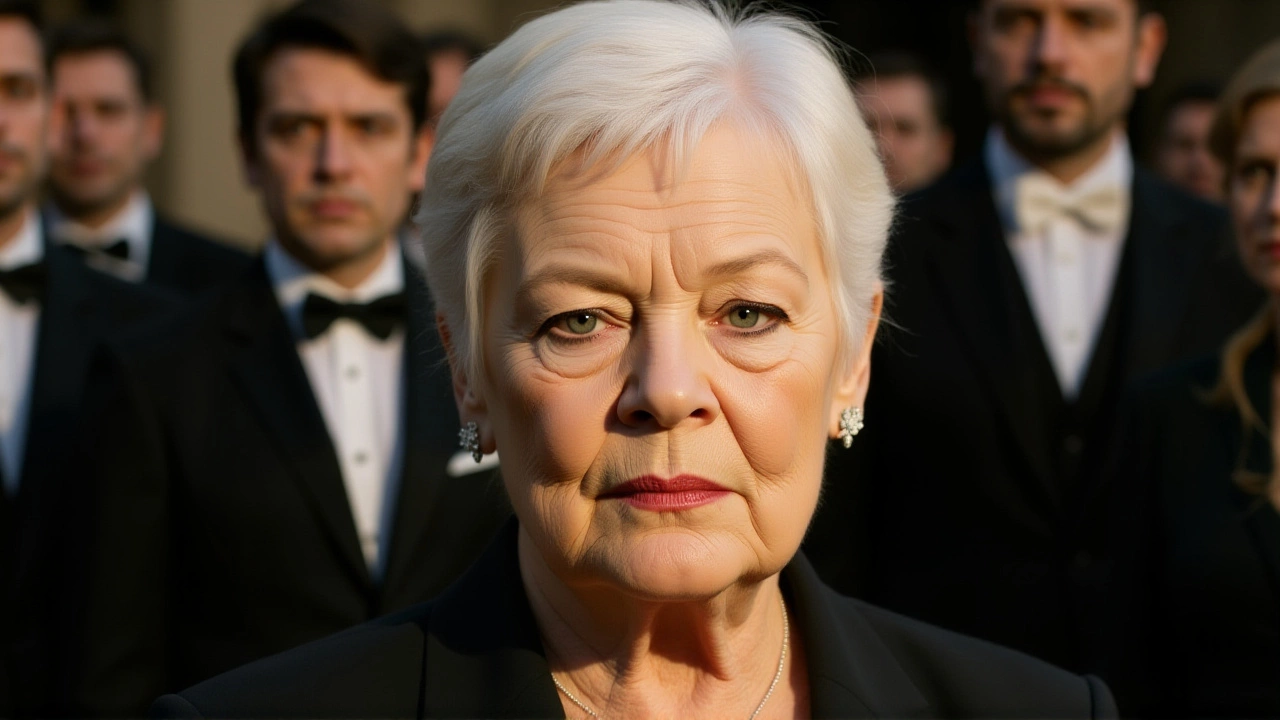When Judi Dench, actress stood beside Italy’s cinema queen Sophia Loren, actress at a charity gala in West End in 1995, she later confessed she’d never felt more frightened. The revelation, quoted in a 1999 interview with The Guardian, turned a routine industry night into a headline‑making moment because Dench, a stalwart of British theatre and film, is renowned for her unshakeable composure.
Historical backdrop: Dench’s rise through the London stage
Dench’s career launched in the early 1960s when she became a regular in London’s West End, sharing bills with the Royal Shakespeare Company’s finest. By the time she landed her breakout film role in Mrs Harris Goes to Paris (1978), she’d already earned a reputation for delivering Shakespearean verse with razor‑sharp timing. Over the decades she collected four BAFTA awards, a Tony, and a knighthood, cementing her status as one of Britain’s most respected performers.
How Loren’s presence broke Dench’s usual armor
The 1995 gala was organized by the British Academy of Film and Television Arts to raise funds for a new acting scholarship. Loren, fresh from promoting the Italian‑American co‑production Two Women, arrived in a sequined gown that drew immediate applause. According to several eyewitnesses, a brief exchange on the red carpet – Dench offering a polite greeting, Loren responding with a warm, larger‑than‑life laugh – left Dench visibly startled.
“I can’t have ever been more frightened,” Dench told the interviewer. She added that Loren’s fame in Italy, combined with her reputation for larger‑than‑life charisma, created a rare moment of genuine nervousness. The actress explained that the feeling wasn’t about intimidation in a hostile sense; it was the awe of standing next to a legend whose career spanned continents and who still commanded the same magnetic pull as in the 1950s.
Reactions from peers and the press
Veteran director Sir Peter Hall, who had directed Dench in several West End productions, noted, “Judi’s honesty is refreshing. She’s rarely the one who admits fear, which shows just how extraordinary Sophia’s aura is.”
Film critic Mark Kermode wrote in his column, “The anecdote may sound like celebrity gossip, but it reveals a universal truth: even the most seasoned artists can be humbled by raw talent and sheer personality.”
Impact on Dench’s public image
Dench’s admission sparked a wave of commentary on the nature of confidence in the performing arts. Some fans praised her vulnerability, calling it a “humanizing moment.” Others worried that the story could be over‑sensationalised, suggesting it downplays Dench’s decades of achievement. In any case, the episode reminded audiences that even icons have moments of awe.
Why this story matters beyond the gossip column
Beyond the headline, the encounter underscores two broader industry trends. First, it highlights the lasting influence of classic European cinema stars on newer generations of actors. Loren’s career, anchored in the golden age of Italian film, still resonates with British talent navigating a global market. Second, it demonstrates that personal anecdotes can shift public perception of artistic resilience, encouraging younger performers to accept vulnerability as part of growth.
What’s next for the two legends?
Dench continues to headline stage productions, most recently reviving her role in All My Sons at the Royal National Theatre. Loren, now in her late 80s, remains active in charity work and occasionally appears at film festivals, often greeted by crowds chanting her name. Neither has hinted at a joint project, but the 1995 story keeps the idea alive among fans who hope for a cross‑generational collaboration.
Background deep dive: From post‑war cinema to modern stagecraft
Sophia Loren emerged from post‑war Italy, becoming an international star with Two Women (1960), for which she won the Academy Award for Best Actress – the first time a non‑American actress received the honor. Her transition to Hollywood in the 1960s solidified her as a transatlantic icon.
Judi Dench, born in 1934 in Whitley Bay, trained at the Central School of Speech and Drama. Her early work with the Royal Shakespeare Company in the 1950s and 60s laid a foundation for a career that would bridge stage, television, and film. Both women have navigated changing industry landscapes, from the golden age of cinema to streaming platforms, proving adaptability is as vital as talent.
Frequently Asked Questions
How did Sophia Loren’s fame influence Judi Dench’s reaction?
Loren’s global stardom, built on Oscar‑winning performances in the 1960s, still carries a magnetic pull. Dench said she felt a rare nervousness because Loren’s larger‑than‑life persona reminded her of the power cinema once held, making the encounter feel almost mythic.
Has Judi Dench ever spoken about other intimidating moments?
Dench has mentioned feeling pressure when sharing the stage with Sir Laurence Olivia in the 1970s, but she never described those experiences as fear. The Loren anecdote remains unique in her public statements.
What does the story reveal about confidence in acting?
It shows that confidence can coexist with moments of awe. Even veteran actors can be reminded of the sheer magnitude of talent that surrounds them, reinforcing humility as part of professional growth.
Will the two actresses collaborate in the future?
There are no announced projects linking Dench and Loren. Both have expressed admiration for each other's work, so a cameo or joint interview remains a tantalising possibility for fans.
How has the media covered the incident?
British tabloids initially treated it as light gossip, but cultural commentators later used it to discuss the pressures on women in film and theatre, highlighting the rarity of such a candid confession from Dench.
